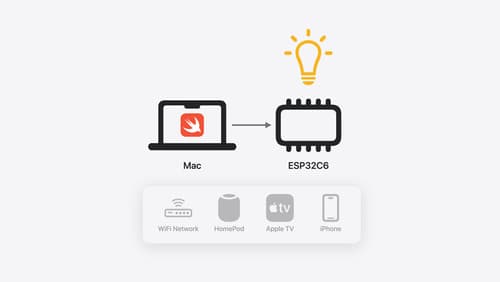how to use conditional compiling in sim modules
Asked on 2024-08-05
1 search
To use conditional compiling in Swift modules, you can leverage the #if directive to include or exclude code based on certain conditions. This is particularly useful when working with different build configurations or platform-specific code.
Here's a basic example of how you might use conditional compilation in a Swift module:
#if DEBUG
print("Debug mode")
#else
print("Release mode")
#endif
In the context of embedded Swift, as discussed in the session Go small with Embedded Swift, you might need to interact with low-level hardware registers or use specific compiler flags. Conditional compilation can help manage these differences.
For example, you might have different code paths for different hardware platforms:
#if ARM
// Code specific to ARM architecture
#elseif RISC_V
// Code specific to RISC-V architecture
#else
// Fallback code
#endif
For more detailed information on how to get started with embedded Swift and manage different build configurations, you can refer to the Embedded Swift user manual mentioned in the session.
If you need to see how modules are built and managed in Xcode, the session Demystify explicitly built modules provides insights into how explicitly built modules work and how you can optimize your build settings to reduce the number of module variants.

Demystify explicitly built modules
Explore how builds are changing in Xcode 16 with explicitly built modules. Discover how modules are used to build your code, how explicitly built modules improve transparency in compilation tasks, and how you can optimize your build by sharing modules across targets.

Go small with Embedded Swift
Embedded Swift brings the safety and expressivity of Swift to constrained environments. Explore how Embedded Swift runs on a variety of microcontrollers through a demonstration using an off-the-shelf Matter device. Learn how the Embedded Swift subset packs the benefits of Swift into a tiny footprint with no runtime, and discover plenty of resources to start your own Embedded Swift adventure.
